Warren Buffett. The name alone conjures images of legendary investment prowess and a folksy wisdom that has guided Berkshire Hathaway to become one of the most successful conglomerates in history. However, there’s another name that deserves equal recognition in this story – Charlie Munger, the lesser-known but equally crucial architect behind Berkshire Hathaway’s remarkable journey.
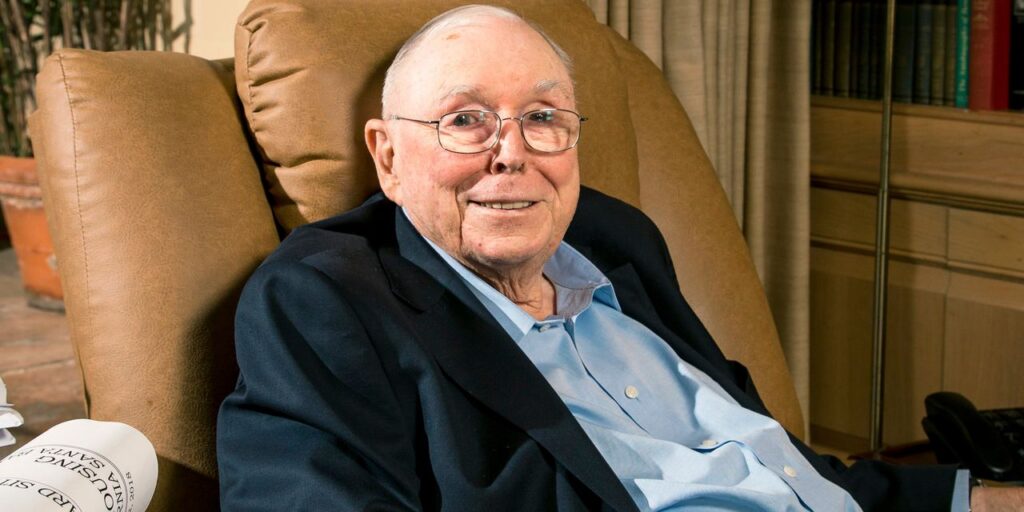
Since 1978, Buffett and Munger have co-run the holding corporation Berkshire Hathaway, with Buffett serving as chairman and CEO and Munger as vice chairman. With an estimated net value of $83.1 billion, the firm is the fourth largest publicly traded company in the world, making Buffett the third richest person on the planet.
The Unlikely Duo: A Meeting of Minds (1959)
The story begins in 1959 Warren Buffett met a seasoned attorney and businessman, Charlie Munger at a dinner party. And both were soon laughing their hearts out at each other’s jokes.
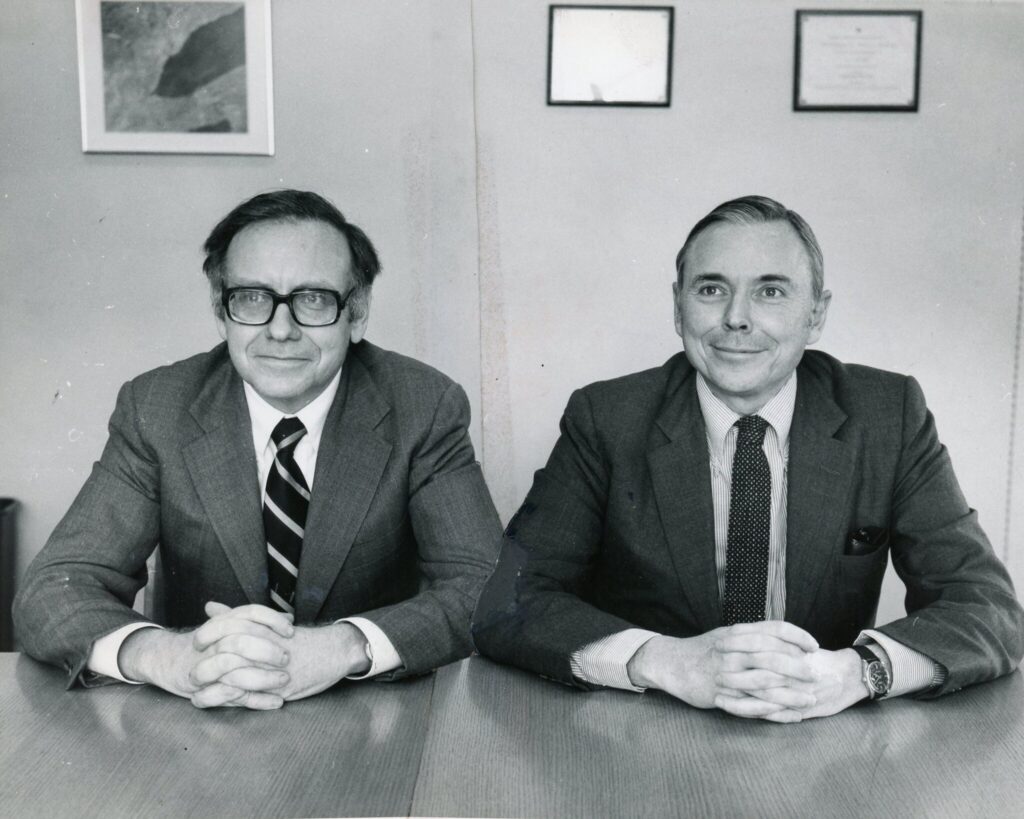
And soon became good friends staying in touch thereafter. Soon Buffet convinced Charlie to switch from law to managing investments, which is precisely what Charlie did and was successfully generating compound annual returns of 19.8% between 1962 and 1975.
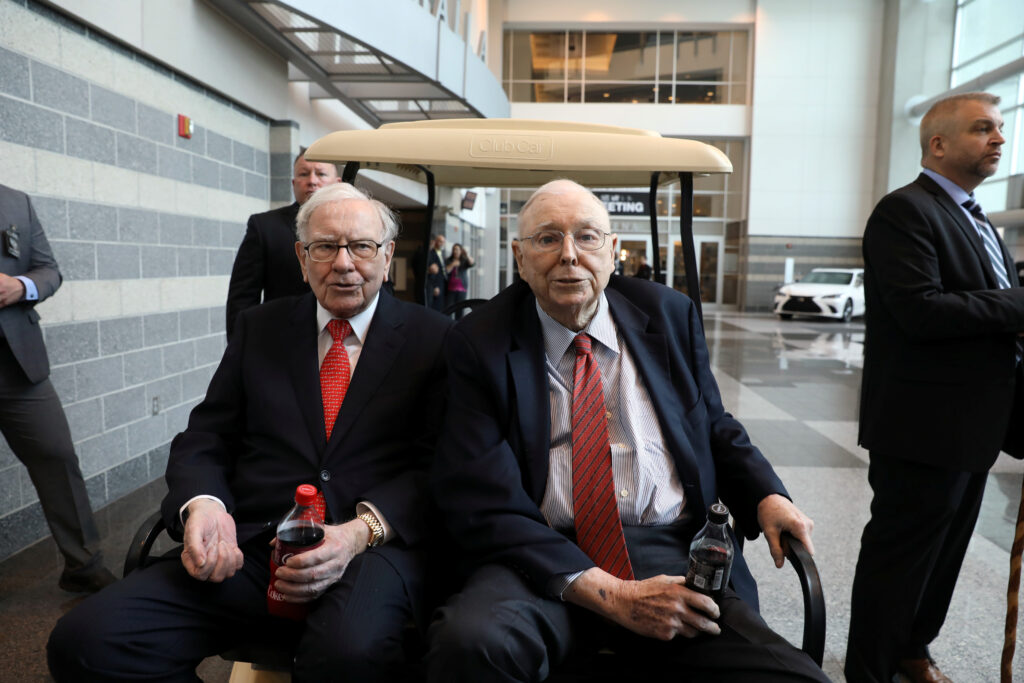
Their meeting was a spark that ignited a partnership that would redefine the world of investing. Buffett, known for his value investing philosophy, recognized in Munger a kindred spirit who shared his focus on long-term value and a deep understanding of business fundamentals.
The Munger Influence: From Lawyer to Philosopher-Investor
Munger wasn’t just a lawyer; he was a voracious reader with a keen interest in psychology, history, and philosophy. Warren on acquiring Berkshire Hathaway became its CEO in 1965 and Charlie on Warren’s insistence joined it as vice chairman in 1978.
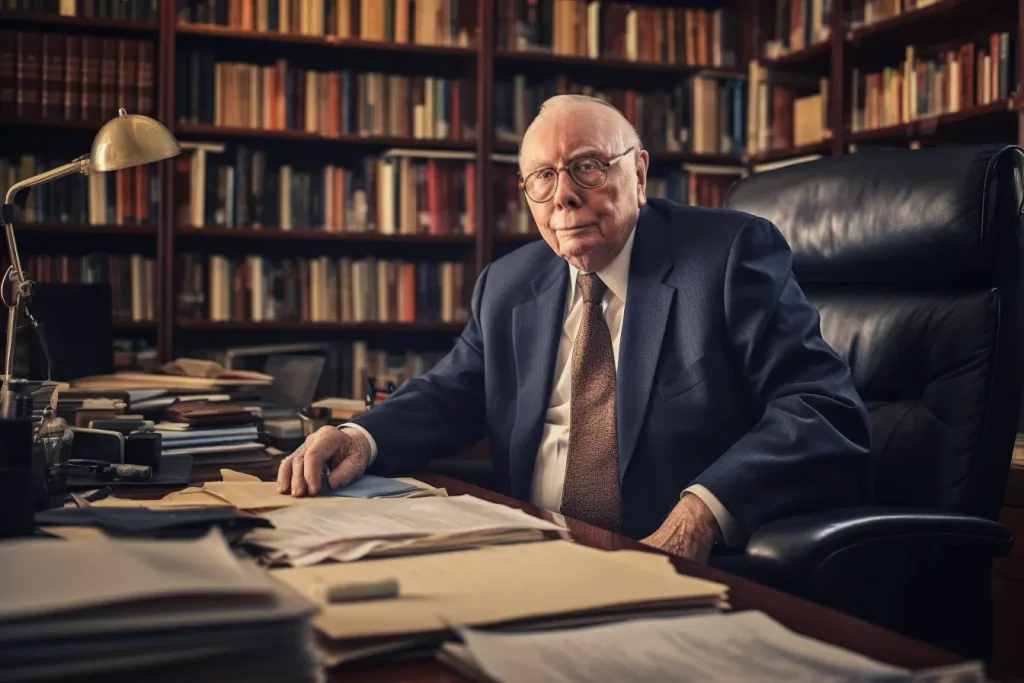
The story actually begins a little earlier, in the early 1960s. Back then, Warren Buffett was still focused on value investing and acquiring undervalued companies. One such acquisition was Berkshire Hathaway, a struggling textile mill. However, Buffett soon realized the limitations of the textile industry and started looking for ways to diversify Berkshire Hathaway’s holdings.
This is where Charlie Munger enters the picture. Though their formal partnership wouldn’t solidify until 1978, Buffett already knew Munger through legal and business circles. Munger’s emphasis on diversification and a focus on long-term value investing resonated with Buffett’s evolving strategy for Berkshire Hathaway.
In 1965, Berkshire Hathaway also acquired a majority stake in Nebraska Furniture Mart, which marked the beginning of Munger’s involvement with the company. Over time, Munger became increasingly involved with Berkshire, eventually joining the board of directors in 1978. His first major contribution came when he convinced Buffett to invest in See’s Candies, a small confectionery business that would become a significant contributor to Berkshire’s profits.
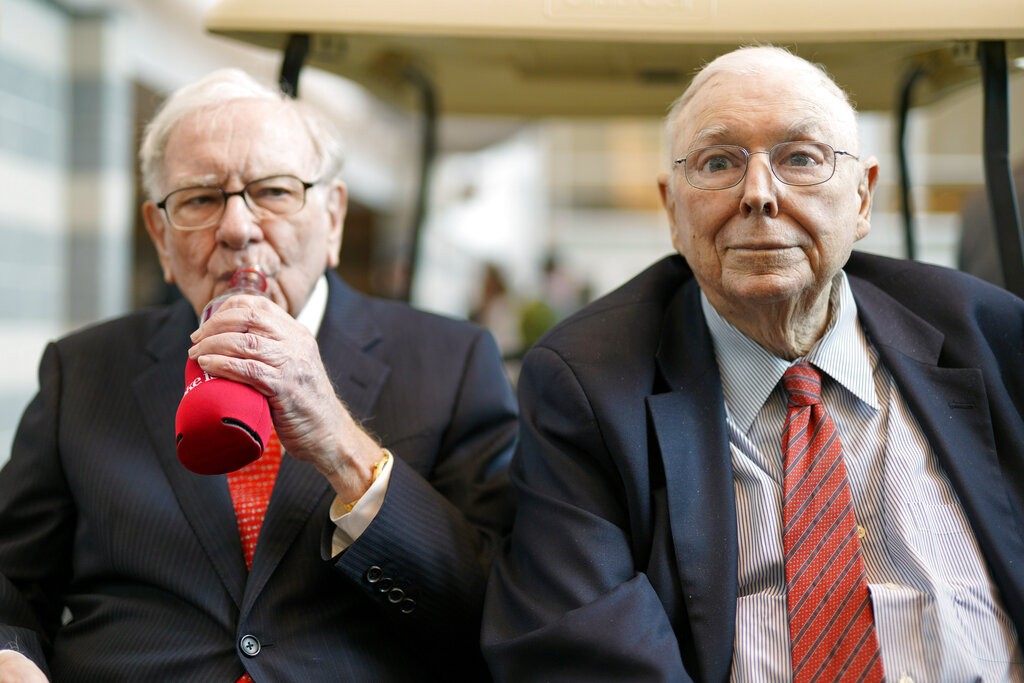
He brought to the table a unique perspective, emphasizing the importance of rationality, psychological biases, and a multidisciplinary approach to investing. This “latticework of mental models,” as Munger called it, became a cornerstone of Berkshire Hathaway’s investment philosophy.
The Right-Hand Man: A Shared Vision, Distinct Roles (1978-2023)
While Buffett took the reins as CEO and public face of Berkshire Hathaway, Munger served as the ever-present vice chairman. Buffett described him as the “architect” who shaped the company’s core principles and the “general contractor” who ensured their execution. Munger’s role went beyond mere advice; he actively participated in investment decisions, challenging Buffett’s assumptions and ensuring a rigorous evaluation process.
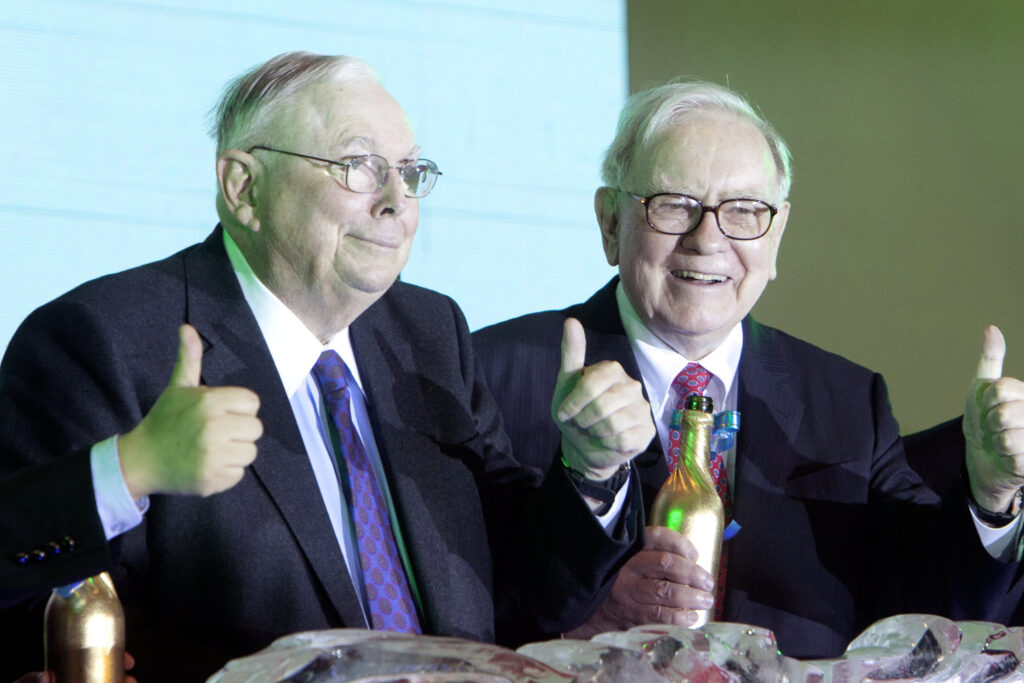
The Munger Effect: From Textile Mill to Diversification
When Munger joined, Berkshire Hathaway was a struggling textile mill. One of the most significant changes he influenced was the shift towards diversification. He recognized the limitations of a single industry and pushed for a focus on acquiring strong, undervalued businesses across various sectors. This strategy proved crucial, insulating Berkshire Hathaway from market fluctuations and creating a long-term growth engine.
Investment Decisions: The Power of Patience and Value
Munger’s fingerprints are evident in some of Berkshire Hathaway’s most successful investments. He championed the acquisition of iconic brands like Coca-Cola, See’s Candies, and American Express, companies with strong brand loyalty, sustainable competitive advantages, and long-term growth prospects. His emphasis on “intrinsic value” – the true underlying worth of a business – helped Berkshire Hathaway stay disciplined and avoid chasing short-term fads.
Milestones Achieved: A Legacy of Growth and Stability
Throughout the 1980s and 1990s, Munger played a crucial role in shaping Berkshire Hathaway’s investment strategy. He was instrumental in the acquisition of Geico Insurance Company, which became one of the company’s most profitable subsidiaries. Under Munger’s guidance, Berkshire also made significant investments in Coca-Cola, Wells Fargo, and American Express, among others.
Under Munger’s influence, Berkshire Hathaway experienced phenomenal growth. From a struggling textile company, it blossomed into a diversified giant, impacting multiple industries. The company’s stock price skyrocketed, generating exceptional returns for its shareholders. More importantly, Berkshire Hathaway earned a reputation for its long-term focus, financial prudence, and unwavering commitment to shareholder value – all principles championed by Munger.
The Partnership Takes Shape
In 1956, Buffett founded Buffett Partnership, Ltd., an investment partnership that focused on value investing. Munger joined the company as a general partner and was instrumental in helping Buffett make several successful investments. In the early years, Munger’s role was that of a sounding board for Buffett, offering his expertise and insights to help guide investment decisions.
Munger’s Management Style
Charlie Munger is known for his unique management style, which emphasizes a hands-off approach to investing. He believes that the best investment decisions are those made by individuals with expertise and knowledge of specific industries or companies. As a result, he encourages Berkshire’s managers to take ownership of their respective businesses, allowing them to make autonomous decisions.
The Insurance Business
In addition to his role as Vice Chairman, Munger is also responsible for overseeing Berkshire Hathaway’s insurance operations. He has been instrumental in the development of the company’s insurance strategy, which focuses on providing coverage for unique and complex risks.
Munger’s Impact on Berkshire Hathaway
Charlie Munger’s contributions to Berkshire Hathaway have been invaluable. His expertise in finance, economics, and business has helped shape the company’s investment strategy and informed many of its most successful acquisitions. Under his guidance, Berkshire Hathaway has grown into one of the world’s largest and most successful conglomerates.
Conclusion: A Partnership for the Ages
Charlie Munger’s legacy at Berkshire Hathaway extends far beyond his titles. He was the “philosopher-king” alongside the “value investor.” Together, they built a company that transcended mere financial success, becoming a testament to the power of sound principles, long-term thinking, and a shared vision. Munger’s influence will continue to shape Berkshire Hathaway for years to come. As a testament to their partnership, Warren Buffett often refers to Munger as his “partner” in business, acknowledging the importance of their relationship to Berkshire Hathaway’s achievements.
Frequently Asked Questions (FAQs):
1. What was Charlie Munger’s role at Berkshire Hathaway?
Charlie Munger served as the vice chairman and played a crucial role in shaping the company’s investment philosophy, emphasizing diversification, intrinsic value, and a long-term focus.
2. How did Charlie Munger influence Berkshire Hathaway?
Munger brought a multidisciplinary approach, emphasizing psychological biases and rationality. He championed diversification and a focus on intrinsic value, contributing to Berkshire Hathaway’s phenomenal growth.
3. What are some of the investment decisions Charlie Munger influenced?
Munger influenced acquisitions of companies like Coca-Cola, See’s Candies, and American Express, all known for their strong brand loyalty and long-term growth potential.
4. What were some of Berkshire Hathaway’s milestones under Charlie Munger?
Berkshire Hathaway transformed from a struggling textile mill into a diversified giant with exceptional returns for shareholders. The company earned a reputation for its long-term focus and commitment to value investing principles.
Q: What is Charlie Munger’s role at Berkshire Hathaway?
A: Charlie Munger serves as Vice Chairman of Berkshire Hathaway, responsible for overseeing insurance operations and providing strategic guidance to the company.
Q: When did Charlie Munger join Berkshire Hathaway?
A: Charlie Munger joined Berkshire Hathaway in 1965 when the company acquired a majority stake in Nebraska Furniture Mart. He became more formally involved with the company in the late 1970s, joining the board of directors in 1978.
Q: What are some notable investments made by Berkshire Hathaway under Charlie Munger’s guidance?
A: Under Munger’s guidance, Berkshire Hathaway has made significant investments in Coca-Cola, Wells Fargo, American Express, and Geico Insurance Company, among others.
Q: How does Charlie Munger approach investing at Berkshire Hathaway?
A: Munger advocates for a hands-off approach to investing, encouraging managers to take ownership of their respective businesses and make autonomous decisions.
Q: What is the significance of Charlie Munger’s partnership with Warren Buffett?
A: The partnership between Charlie Munger and Warren Buffett has been instrumental in shaping Berkshire Hathaway into one of the world’s most successful conglomerates. Their friendship and business relationship have endured for over 60 years, making them one of the most enduring partnerships in business history.
Reference : http://www.businessinsider.com





